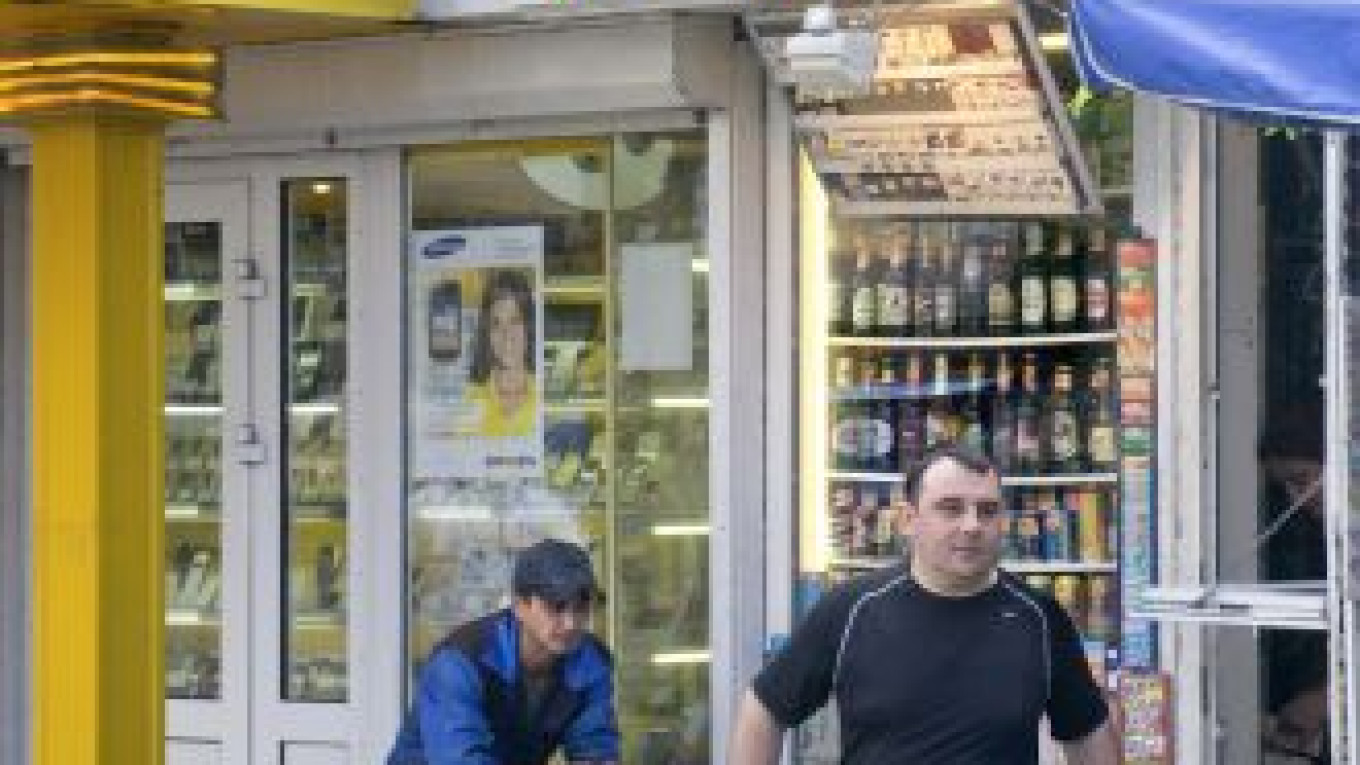Utilities bills, alcohol and tobacco prices and parking fines shot up Sunday under government initiatives that few doubt are unnecessary but hold the potential of fueling discontent against the Kremlin.
The government is keeping an especially close eye on public reaction to the 15 percent increase in the cost of utilities,? electricity, gas and water.
The measure, meant to pass on some actual costs in the long-subsidized communal services sector to households, was initially supposed to have come into force on Jan. 1 but was delayed until July 1, well after the March presidential election.
Some pundits warned that the increase might lead to protests in poorer provinces.
"While fighting against the new tariffs, people will call for the resignation of the government," said Mark Feigin, a senior member of the Solidarity opposition movement.
The authorities say the price hike will share fair costs with consumers and allow them to improve the country's aging utilities infrastructure.
But opponents have maintained that past increases did not contribute to the well-being of the sector, seen as one of the most corrupt in Russia.
According to the presidential administration, 25 billion rubles ($800 million) was siphoned out of the sector in the Central Federal District alone from 2009 to 2010.
"The sector's poor condition is a direct result of the absence of reform," said Feigin, who served as a deputy governor in? the Samara? region during the 1990s.
In the Altai region, one of Russia's poorest provinces, news of the increase angered locals — who blamed Putin.
"Glory to the Russian people who advocate stability and oppose the unjustified rise of prices," read a comment on an article about the increase on a local news site, Atmosphere. The comment referred to Putin's election campaign, which touted stability as an achievement of his rule.
Among other price increases, alcohol and tobacco goods will cost more after Sunday as new excise stamps and? other requirements meant to curb demand came into force. The cheapest half-liter bottle of vodka now costs 125 rubles ($4.50), not 98 rubles. Supermarkets, meanwhile, can no longer sell beer after 11 p.m., and kiosks cannot sell it at all.
The anti-alcohol campaign narrowly avoided ensnaring a range of national drinks, including kefir, ryazhenka and? kvas, all of? which contain small amounts of? alcohol.
Prime Minister Dmitry Medvedev signed a decree on Friday exempting about a? dozen products from the new regulations requiring producers of? food and? beverages with more than 0.5 percent alcohol content to? get the special excise stamps and? meet the other requirements.
The exempted products are "sour dairy beverages," fermented beverages including kvas, cider and? honey-based wines that contain between 0.5 and? 1.2 percent alcohol, ice cream, chocolate, sherbet, "sweet edible ice," pastries, and? cold-smoked sausage, according to? a copy of? the document posted on? the government's website.
Licensing requirements for drinks such as cider and? the mead-like sbiten would have been too costly for? the small businesses that produce many of? them, meaning they would have been forced to? close down, Vedomosti reported.
Drivers also face up to a tenfold increase in fines.
Cars with windows tinted darker than legally permitted will have their license plates temporarily removed, and the owner will get a 500 ruble fine, Rossiiskaya Gazeta reported.
Unauthorized crossing into a bus lane will mean a 1,500 ruble fine. If you park in a bus lane or on tram rails in Moscow, you'll get a 3,000 ruble fine and your car will be towed.
If you stop in a tunnel, thereby disrupting the flow of traffic, you'll also get fined 3,000 rubles.
A Message from The Moscow Times:
Dear readers,
We are facing unprecedented challenges. Russia's Prosecutor General's Office has designated The Moscow Times as an "undesirable" organization, criminalizing our work and putting our staff at risk of prosecution. This follows our earlier unjust labeling as a "foreign agent."
These actions are direct attempts to silence independent journalism in Russia. The authorities claim our work "discredits the decisions of the Russian leadership." We see things differently: we strive to provide accurate, unbiased reporting on Russia.
We, the journalists of The Moscow Times, refuse to be silenced. But to continue our work, we need your help.
Your support, no matter how small, makes a world of difference. If you can, please support us monthly starting from just $2. It's quick to set up, and every contribution makes a significant impact.
By supporting The Moscow Times, you're defending open, independent journalism in the face of repression. Thank you for standing with us.
Remind me later.


